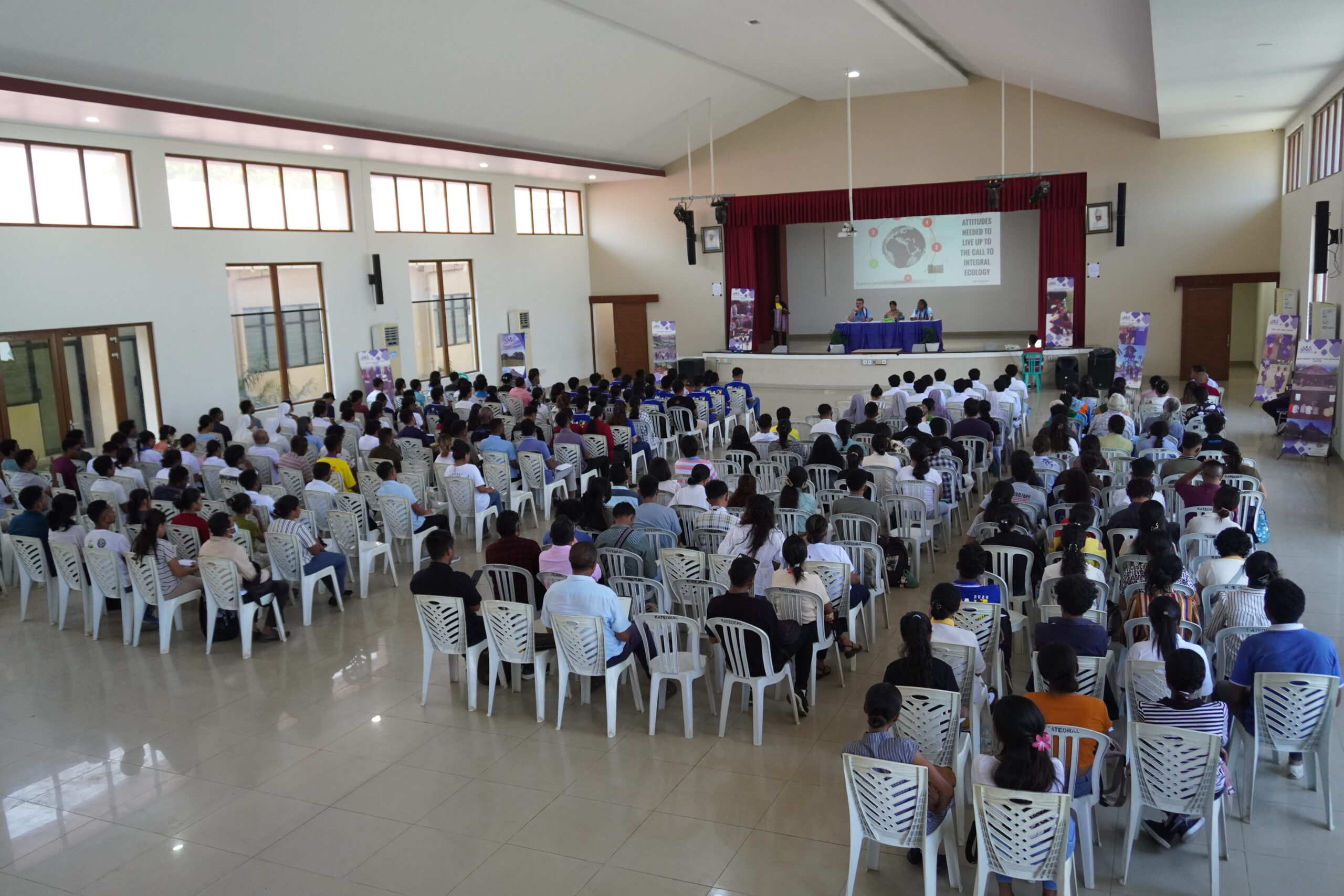In a time of immense environmental challenges—from climate change to biodiversity loss—the world urgently needs a moral and spiritual response. The ecological crisis threatens not only the planet but also the livelihoods and dignity of countless people, especially the most vulnerable. In recognition of this, the Jesuits have made ecology a central part of their mission, aligning it with their Universal Apostolic Preferences, which include “Caring for our Common Home.” This global call for environmental justice reflects the Jesuit commitment to walk alongside marginalized communities, address the root causes of social and ecological injustices and, promote sustainable solutions.
In this spirit, Jesuit Social Services (JSS) in Timor-Leste hosted its first-ever ecological seminar, entitled “Ecological Crisis from a Religious Perspective,” on October 16, 2024, in Dili. More than 300 participants came together to explore the connection between faith and environmental stewardship. The seminar marked an important moment for the Jesuits in Timor-Leste, uniting voices from various sectors—clergy, youth activists, students, environmental consultants, and community leaders—to respond to urgent issues.

The seminar began with an impactful speech by Fr. Erik John Gerilla, SJ the Regional Superior of the Jesuits. He spoke from the heart about the real effects of the ecological crisis on the Timorese people. He expressed concern that many people still do not realize how their everyday actions contribute to climate change, making it difficult to rally the community for meaningful action. “The ecological crisis is real, and we’re feeling its impact here in Timor-Leste. But there’s still a lot of unawareness,” he said, encouraging everyone to listen closely and think about how they can make a difference.
Several key speakers shared their unique perspectives on the ecological crisis. Fr. Roberto Jaramillo, SJ, a well-known Jesuit leader in social and environmental justice, discussed five attitudes toward ecological conversion, reminding the audience of our responsibility to care for nature and that all living things on Earth are interconnected. On the other hand, Ms. Dircia, a youth activist and environmental consultant, emphasized the critical role of young people in the fight against climate change. She stated, “We are the generation that will bear the consequences of inaction, and we demand that our voices be heard.” Mr. Ego Lemos, founder of Permacultura Timor-Leste, wrapped up the seminar with practical advice on adopting sustainable practices. He highlighted the importance of living in harmony with nature and closed his presentation by singing a song he composed about the environment.
Fr. Julio, the Director of JSS, concluded the seminar with a heartfelt thanksgiving speech. He invited everyone to contribute to *Intellectual Engagement and Advocacy: Act Now and to continue the Ecological Conversation that has begun. He noted, “Addressing the environmental crisis requires more than just planting trees or cleaning up oceans—it calls for a deeper transformation of mindset, vision, and influence on the structures and systems in our society.” He expressed gratitude to everyone who attended, highlighting that their presence and participation are essential for a sustainable future. He encouraged all to keep the conversation alive and to act now for the benefit of our common home.
The seminar ended with a lively discussion, as participants engaged with the speakers and reflected on how faith and environmental movements can unite to tackle the ecological crisis. [Author: Lucrecia- ETR volunteer]

